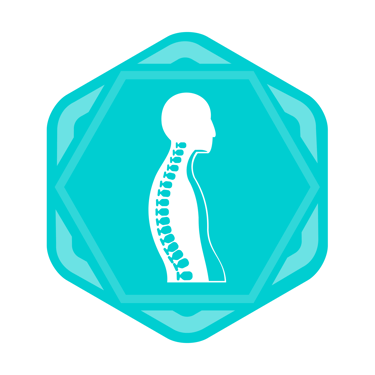Start Early!!
Transform Your Child's Life Through Early Intervention Program
Shreya Donadkar (MPT)
5/25/20243 min read


Why is it Important?
As a parent, caregiver, or educator, you may have heard about the critical importance of early intervention programs for infants and toddlers with developmental delays and neurological disorders such as Cerebral Palsy, Down's Syndrome, etc.
Remember that time is essential while addressing developmental concerns to ensure your child has the best possible start in life. Because at this age, children are like sponges, soaking up everything around them and rapidly developing crucial skills.
Let's Understand Developmental Delays
Before delving into the significance of early intervention, it's essential to understand what developmental delays and neurological disorders entail.
Developmental delays can manifest in various areas, such as motor skills, speech and language, cognitive abilities, and social or emotional development. On the other hand, neurological disorders encompass conditions like Autism Spectrum Disorder, Cerebral Palsy, Down syndrome, and epilepsy, among others. Frequently, the underlying cause of developmental delay can be a neurological disorder or any genetic abnormality, or the child might be underexposed to the stimuli. These challenges can significantly impact a child's overall development, potentially affecting their ability to communicate, interact with others, learn, and perform everyday tasks.
Recognizing the signs of developmental delays and neurological disorders early on is crucial for prompt intervention and support.
Symptoms of developmental delay include:
Delays in rolling over, sitting up, crawling, and walking.
Your child has trouble with fine motor skills.
Your child is not talking or has an irrelevant talk.
Problems understanding what others say
Issues with social skills.
Poor or no eye contact
Inability to connect actions with consequences.
Why Early Intervention Matters?
Children's brains are incredibly malleable during the early years of life. This period is marked by rapid brain development and synaptic growth, which lay the foundation for future learning and functioning. It's often likened to a time when children are like sponges, eagerly absorbing new information and experiences.
When developmental concerns or neurological disorders are identified, intervening early can make a profound difference in your child's life. Early intervention aims to provide specialized services and support tailored to the child's unique needs, promote development, address challenges, and maximize the child's potential.
By harnessing the plasticity of the developing brain, early intervention can help rewire neural pathways, teach essential skills, and facilitate progress in areas of difficulty. This proactive approach sets the stage for better development and can lead to quicker and more significant results than delayed intervention.
Moreover, early intervention extends beyond the child alone. It equips parents and caregivers with strategies to support their child's development, fosters a collaborative relationship between families and professionals, and promotes a holistic approach to addressing the child's needs within their everyday environment.
Empowering Families: The Crucial Role of Support Services
Early intervention programs benefit your child and empower your entire family. Families play a vital role in the early intervention process, as they are the experts on their child's needs and the primary facilitators of their child's development.
Early intervention programs offer support services to equip families with the knowledge, skills, and resources to support their child's growth. This may include parent education workshops, counseling, and connections to community resources.
Conclusion
The significance of early intervention for infants and toddlers with developmental delays and neurological disorders cannot be overstated. Recognizing the importance of time in the early years, we must strive to identify concerns promptly and take proactive steps to support children in reaching their full potential.
By embracing early intervention, we embrace the opportunity to make a meaningful and lasting impact on the lives of these young children, setting the stage for a future filled with possibilities and achievements.
What services come under Early Intervention Program?
If your infant or toddler has a disability or a developmental delay in one or more of these developmental areas, he/she will likely benefit from early intervention services. Those services will be tailored to meet the child’s individual needs and may include:
Physical therapy
Audiology or hearing services
Speech and language services
Counseling and training for a family
Medical services
Nursing services
Nutrition services
Occupational therapy
Psychological services
Assistive technology and aids
By providing families with the tools and support they need, an early intervention program helps to reduce the stress and isolation that can accompany the challenges of raising a child with developmental delays or neurological disorders. Families are empowered to advocate for their children, collaborate effectively with professionals, and create a nurturing environment that fosters their child's progress. This holistic approach strengthens the entire family unit, promoting resilience, well-being, and a sense of community.


WORKING HOURS
Monday - Saturday 8:00 AM - 8:00 PM
Sunday 9:00 AM - 5:00 PM
ADDRESS
Kairos Physio, F3 First floor, near Basillios Gym, St. Inez Rd., St. Inez, Panjim- Goa 403001.
CONTACT
+91 7259527374
kairosphysio@gmail.com
